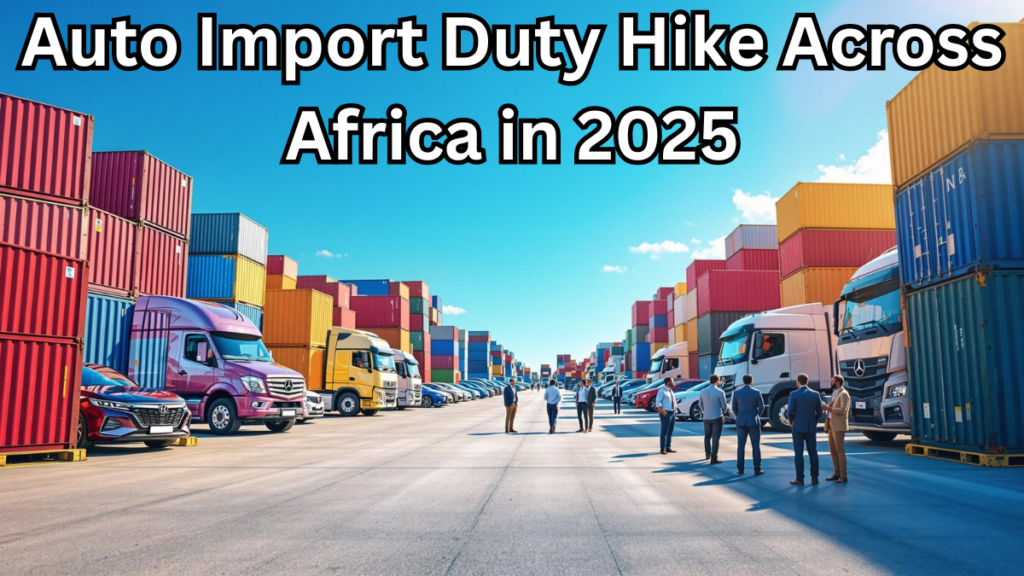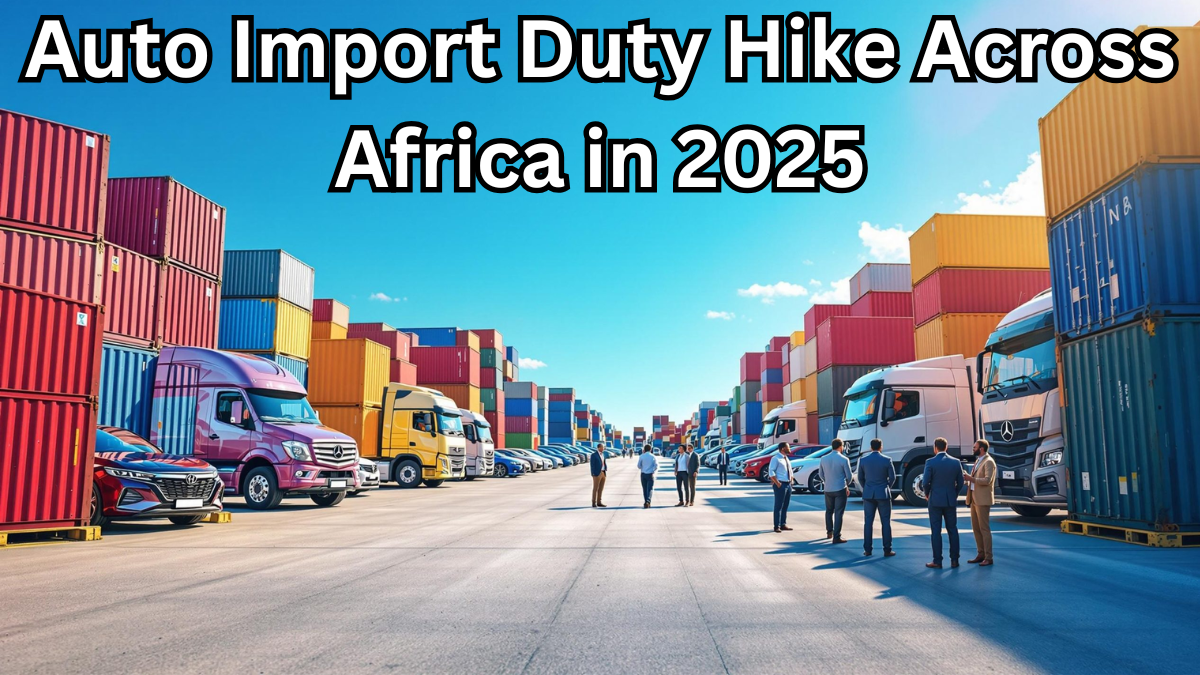If you’re planning to import a car into any African country in 2025, you might want to pause and read this. Several African governments are updating their auto import tax policies to encourage local production, curb pollution, and regulate the inflow of used vehicles. But what does this really mean for buyers and importers?
Let’s break down what the Auto Import Duty Hike Africa trend looks like, and how it may affect your wallet and choices.

Why the Hike in Auto Import Duties?
Governments across Africa are now moving toward:
-
Boosting local auto manufacturing
-
Limiting the import of older, polluting cars
-
Increasing revenue through higher car import tax
This car import tax update isn’t just about the money—it’s part of a broader plan to modernize transportation while supporting homegrown industries.
Countries Leading the Way in 2025
Here’s a look at some key countries and their revised auto import duty policies:
| Country | New Duty Rate (%) | Key Changes |
|---|---|---|
| Kenya | 45% (was 35%) | Higher rates for cars older than 5 years |
| Nigeria | 50% (was 40%) | Penalty tax on diesel-engine imports |
| Ghana | 40% (was 30%) | EVs given partial duty waivers |
| South Africa | 38% (was 25%) | Push for hybrid & local assembly incentives |
| Uganda | 48% (was 30%) | Banned cars older than 10 years |
The Auto Import Duty Hike Africa movement is clearly gaining momentum across the continent.
What This Means for Car Buyers
If you’re a consumer, dealer, or business planning to import vehicles into Africa this year, here’s how the car import tax update could impact you:
Budget Adjustments Needed
-
Prepare to pay 10–20% more on imported cars
-
Older second-hand cars will cost disproportionately more
Shift to Locally Assembled Cars
-
More buyers may prefer locally assembled vehicles
-
Governments are offering incentives to local manufacturers
Electric Vehicles Might Be the Silver Lining
-
EVs are still taxed but at reduced duty rates
-
This might be the right time to switch to greener transport
What Importers Should Watch For
If you run a dealership or are an independent car importer:
-
Stay updated on country-specific rules—they’re changing fast
-
Check vehicle age limits before shipping cars
-
Include duty hikes in pricing strategy to avoid losses
-
Consider partnering with local assembly units or suppliers
Summary of Key Impacts in 2025
| Area Affected | Impact Description |
|---|---|
| Import Costs | Higher duties across multiple African nations |
| Car Prices | Up to 25% increase on older imported cars |
| Used Car Market | Potential dip in affordability and sales volume |
| Electric Vehicle Sales | May increase due to lower import duties |
| Local Industry | Expected to grow due to government incentives |
FAQs
Q1: Why is there an Auto Import Duty Hike across Africa in 2025?
A: Most governments aim to encourage local car manufacturing, reduce emissions, and limit the import of older vehicles.
Q2: How does this car import tax update affect me as a buyer?
A: You’ll likely pay more for imported vehicles, especially if they’re used or older models. However, EVs and local cars may offer savings.
Q3: Are electric vehicles exempt from the new auto import duties?
A: Not fully, but many countries are offering reduced duty rates or partial waivers on EVs to promote greener transport.
Q4: Which countries in Africa have the highest import duties in 2025?
A: Nigeria and Uganda are currently among the highest, with import duty rates reaching up to 50% depending on vehicle type and age.
Click here to learn more
Sachin is a dedicated writer specializing in education, career, and recruitment topics, delivering clear and actionable insights to empower readers.
